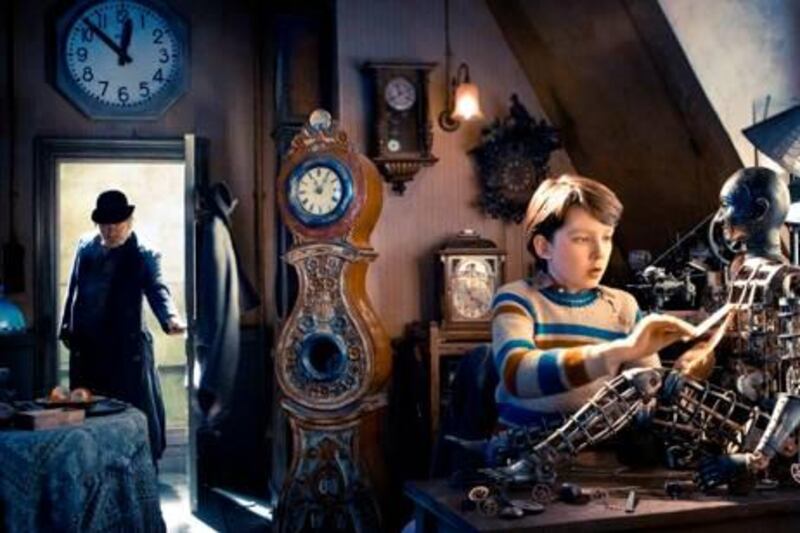Hugo
Director: Martin Scorsese
Starring: Asa Butterfield, Chloë Moretz, Ben Kingsley
****
Seen from up high, the giant boulevards and glowing street lamps of 1930s Paris appear to spin and hum like a delicate piece of machinery in the opening minutes of Martin Scorsese's first family movie. The breathtaking scene both introduces the bustling railway station in which the adventure takes place and drops hints about the story's unusual preoccupations: watchmaking, automatons and film projection.
Films: The National watches
Film reviews, festivals and all things cinema related
[ Film ]
With the best - or perhaps just the least obstructive - use yet of 3D, we are introduced to Hugo Cabret (Asa Butterfield), a waif who has been living in the station's cavernous rafters and stealing food from shopkeepers since his father died in a fire. The story centres on his friendship with a young girl (Chloë Moretz) as they strive to unlock the incredible past of her once-famous grandfather (Ben Kingsley) and to elude the child-snatching Inspector Gustav (Sacha Baron Cohen). Scorsese has said his 12-year-old daughter inspired him to make a movie that young people could enjoy, but the 69-year-old has been indulging himself, too. Hugo is a film about the magic of cinema (the silent screen in particular) and the technical wizardry used to create it. From the tender Butterfield to the broadly comedic Baron Cohen, every single performance is a delight, even if the story itself can feel a little low-stakes. Most importantly, Scorsese's homage to film's most inventive and optimistic era overflows with those very attributes, giving it a truly universal appeal.





